Premium Only Content
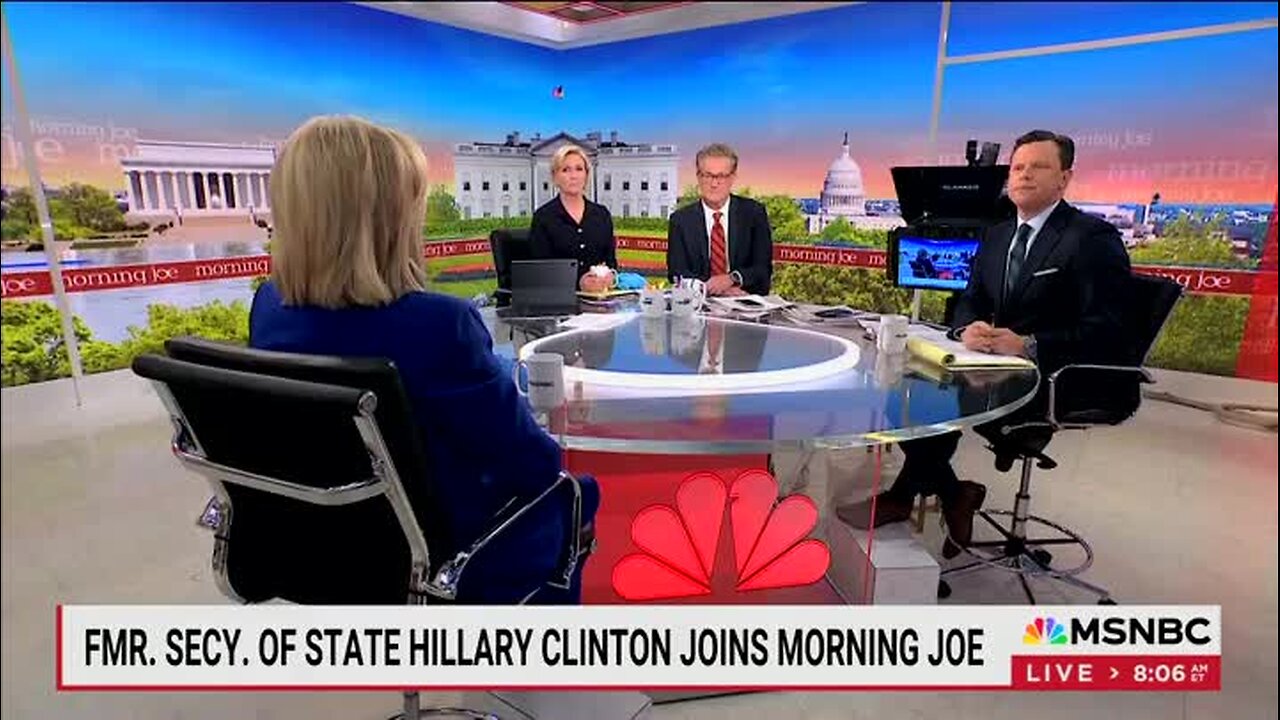
Hillary: In the Absence of the U.S. Leadership, Organizations Like the Clinton Foundation ‘Have to Fill that Gap’
GEIST: “Madam Secretary, you’re here during U.N. week.”
Clinton: “Yes.”
GEIST: “You have close relationships from your years in public service with leaders from around the world. I’m curious in your public and perhaps in your private conversations, what they’re telling you about dealing with this president, particularly in his second term, when it feels that the guardrails are off in many ways about the flattery they feel like they need to give him. If you look at his visit to the U.K. last week —“
Clinton: “Mm-hmm.”
GEIST: “— or even President Macron giving that friendly phone call in traffic yesterday —“
Clinton: “Mm-hmm.”
GEIST: “— just about the way they have to deal with this president, different from, say, the previous president, or your husband —“
Clinton: “Mm-hmm.”
GEIST: “— or Ronald Reagan. What — what are they telling you about what foreign policy is like in this second Trump Administration?”
Clinton: “Well, I was listening to your interview with Congressman Jason Crow before I came on, and he made a really important point. In dealing with President Trump, there is no larger strategy. There is no overarching goal. We’ve just been talking about what presidents, both Republican and Democrats, were trying to do strategically with Russia. It’s all personal with President Trump. It’s all about how he feels about someone, when he wakes up in the morning thinking, who’s the last person who talked to him? Everybody’s figured that out. And so if you are in pursuit of a larger objective, ending the war in Ukraine on terms that are favorable to Ukraine, to freedom, to the larger issues in Europe and beyond, ending the war in the Middle East, you know, figuring out what the day after will look like, dealing with China, dealing with Iran, there has to be strategy, but it has to be conveyed in a way that leaders believe President Trump will hear them. And, you know, that’s personal diplomacy. I wrote a piece in ‘The New York Times’ that ran a day or two ago with my co-teacher at Columbia, the Dean of the School of International and Public Affairs, Keren Yarhi-Milo, where we said, you know, don’t over-personalize foreign policy because you can replace, you know, credibility with volatility. But when you have a leader who only personalizes policy, domestic and foreign, you have to figure out how you can be heard by him, how you perhaps can convince him. So I actually think that the Europeans have learned a lot of those lessons —“
BRZEZINSKI: “Yeah.”
Clinton: “— because there are certain feelings that he has about people and strategy and geopolitics that you have to key into. So what I’ve been hearing from a lot of people is how do we get the president to put the pressure on Bibi Netanyahu to end this war in Gaza? How do we then persuade the president to do what should be done in cooperation with our friends and allies in the Arab world to have a truly effective day-after plan that doesn’t include expelling, you know, two million Gazans, annexing the West Bank, trying to build casinos on the Mediterranean? How do we convey that that is not good for him and his legacy and his place in history or how he is seen? So I think there’s a lot of those conversations going on. You know, I’m at the Clinton Global Initiative, and what we’re doing there is focusing on the big gaps that are being left in humanitarian aid, in support for climate resilience, in trying to keep ladders going for economic opportunity, the kinds of things that, you know, my husband and I have spent much of our life doing. And there we’re talking to leaders who have come to CGI about, OK, the United States is no longer our partner. USAID has been, you know, totally destroyed. How do we fill the gaps? And, you know, I just want to say today at CGI, my husband will be making this really important announcement because there’s a new drug called lenacapavir, which is an injectable. You take it twice a year, it prevents HIV and AIDS. And so it’s very expensive in the United States, but the Clinton Health Access Initiative, which Bill started 25 years ago, along with working on these issues with Nelson Mandela and others, and then with George W. Bush, they’ve gotten the price down to $40 a year, from like $14,000, which is what it would otherwise cost. So they’ll be announcing that today because in the absence of the U.S. government playing the role of leading us in humanitarian issues, then not-for-profits organizations like the Clinton Foundation, the Clinton Global Initiative and others have to fill that gap. So I’m having two conversations.”
BRZEZINSKI: “Yeah.”
Clinton: “I’m having the strategic conversation with a lot of people who are focused on that, and then I’m having the fill-the-gap conversation with others.”
BRZEZINSKI: “Right. Which might be needed a lot more. I mean, CGI now is 20 years —“
Clinton: “Yes.”
BRZEZINSKI: “— a 20-year anniversary —“
Clinton: “Right.”
BRZEZINSKI: “— and you just talked about the Clinton Health Access Initiative. When you look at HHS and what is happening with RFK and vaccine access and the list goes on, how can organizations like CGI fill the gap when it comes to our nation’s health?”
Clinton: “Oh, it’s a great question, Mika. You know, we’re doing a series of working groups, and in those working groups are experts, not just of the United States but all over. And one of the biggest concerns is what we are doing in our own country to put our own people’s health at risk, dismantling public health, listening to literally crackpot ideas about what’s happening. And somebody reminded me yesterday, you know, in 1800, the average life expectancy in the country was about 35. It got up to 47 in 1900. It is now 78. You know, when I hear people like, you know, Kennedy and others talking about, you know, getting back to a time when we aren’t vaccinating, we’re drinking raw milk, yeah —“
BRZEZINSKI: “What?”
Clinton: “— and people didn’t live.”
BRZEZINSKI: “Right.”
Clinton: “I mean, this is — this is so crazy. It’s so wrongheaded. It’s so short-sighted. And it’s going to cause deaths. We just saw two children die from whooping cough. We saw the deaths from measles. You know, I — I think we have to test science. We have to do, you know, all kinds of trials. We have to hold our pharmaceutical companies to a high standard, all of which we have done starting in the 20th century, moving into this century. And these guys want to literally turn the clock back. And, you know, when I see what is likely to happen, because people are being confused —“
BRZEZINSKI: “Right.”
Clinton: “— when your president says something, when a Kennedy who’s the secretary of HHS says something, what are you supposed to believe?”
BRZEZINSKI: “Right.”
Clinton: “When you fire experts who’ve spent their entire life studying something that I want to know about, I have three grandchildren, I want to make sure they’re healthy. You know, people are confused. And too many Americans are listening to this, you know, very destructive, anti-science tirade, you know, that we’re hearing from this administration. And it’s going to cost lives. It already is costing lives.”
-
![Kimmel on ‘Bubba’ Email: ‘Man, He [Trump] Couldn’t Even Let Hillary Have That’](https://1a-1791.com/video/fww1/39/s8/1/O/c/0/A/Oc0Az.0kob-small-Kimmel-on-Bubba-Email-Man-H.jpg) 2:19
2:19
Grabien
1 day agoKimmel on ‘Bubba’ Email: ‘Man, He [Trump] Couldn’t Even Let Hillary Have That’
21 -
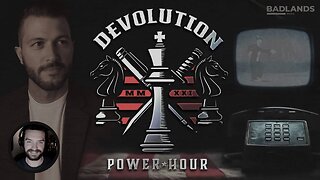 2:22:44
2:22:44
Badlands Media
11 hours agoDevolution Power Hour Ep. 408: Immigration Panic, Epstein Optics & the Narrative Unraveling
73.5K18 -
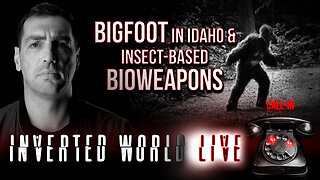 2:06:57
2:06:57
Inverted World Live
5 hours agoBigfoot in Idaho & Insect-Based Bioweapons | Ep. 144
61.8K4 -
 LIVE
LIVE
Akademiks
3 hours agoMeg Thee Stallion Back LYING again? Offset vs Finesse2x. 6ix9ine house robbed.. HERES WHO DID IT
1,018 watching -
 2:57:51
2:57:51
TimcastIRL
5 hours agoGOP Rep Threatens Hillary Clinton With CRIMINAL CHARGES Over Epstein | Timcast IRL
234K75 -
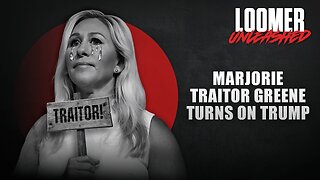 2:36:45
2:36:45
Laura Loomer
4 hours agoEP157: Marjorie TRAITOR Greene Turns On Trump
31.8K76 -
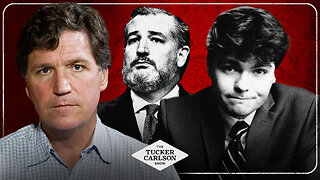 1:35:44
1:35:44
Tucker Carlson
5 hours agoWhy Is Nick Fuentes So Popular? Nikki Haley's Son Explains.
70.4K417 -
 41:11
41:11
T-SPLY
3 hours agoProtesters Clash With Border Patrol In Charlotte!
20.3K11 -
 2:03:14
2:03:14
ThatStarWarsGirl
3 hours agoTSWG LIVE: I'm Back From My Channel Strike! Let's Discuss The Elephant In The Room
19.5K7 -
 2:59:04
2:59:04
I_Came_With_Fire_Podcast
15 hours agoAmerica's Hidden War | The Propaganda Through Line | An Ally Aids an Enemy
16.5K16